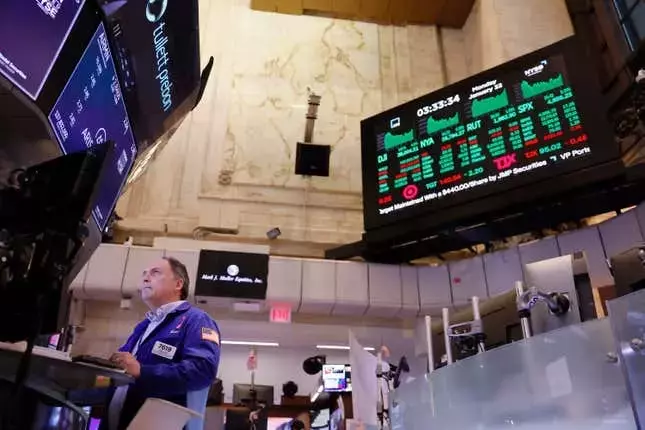Geopolitical Tensions Rattle Markets as Oil Prices Surge
The global financial markets are facing a perfect storm of challenges, as escalating tensions between Israel and Iran have sent crude oil prices soaring, raising concerns about potential inflationary pressures in the United States. This comes at a time when the U.S. is already grappling with supply chain disruptions due to a port strike, further complicating the economic landscape.Navigating the Turbulent Waters of Geopolitical Uncertainty
Crude Oil Prices Surge Amid Heightened Tensions
The ongoing conflict between Israel and Iran has sent shockwaves through the global energy markets, with West Texas Intermediate and Brent crude oil prices surging nearly 3% in the morning trading. This sharp increase in oil prices is a significant concern for policymakers and economists, as it could potentially undermine the Federal Reserve's efforts to rein in inflation and lower interest rates. The situation is further exacerbated by the ongoing U.S. port strike, which is adding to supply chain disruptions and heightening concerns about the overall health of the economy.The rise in oil prices is a double-edged sword, as it can have both positive and negative implications for the U.S. economy. On the one hand, it could provide a boost to domestic energy producers, who may see increased profits and investment in the sector. However, the higher costs of energy and transportation could also lead to higher prices for consumers, putting additional strain on household budgets and potentially slowing economic growth.Equity Markets Respond to Geopolitical Uncertainty
The escalating tensions between Israel and Iran have also had a ripple effect on the U.S. equity markets, with the Dow Jones Industrial Average and the S&P 500 edging lower in the morning trading. The tech-heavy Nasdaq, in particular, has seen a more pronounced decline, dropping 0.5% as investors grapple with the potential impact of the geopolitical situation on the broader economy.The market's reaction highlights the sensitivity of investors to geopolitical risks, which can have far-reaching consequences on the performance of various sectors and asset classes. As the situation continues to unfold, market participants will be closely monitoring developments and adjusting their investment strategies accordingly.The Federal Reserve's Balancing Act
The surge in oil prices poses a significant challenge for the Federal Reserve, which has been working to tame inflation through a series of interest rate hikes. The central bank's efforts to cool the economy and bring down inflation could be undermined by the rising cost of energy, which can have a ripple effect on consumer prices and overall economic activity.The Federal Reserve will need to carefully navigate this delicate balance, weighing the need to maintain price stability against the potential for further economic disruption caused by the geopolitical tensions. Policymakers will likely closely monitor the situation and be prepared to adjust their monetary policy stance as needed to ensure the continued stability and resilience of the U.S. economy.The Impact on the Labor Market
Despite the broader economic uncertainty, the U.S. labor market has continued to show signs of strength, with the ADP's private-sector employment report revealing that 143,000 jobs were added in September, surpassing the forecast of 124,000. This positive data point suggests that the labor market remains resilient, even in the face of the various challenges facing the economy.However, the situation remains fluid, and the impact of the geopolitical tensions and supply chain disruptions on the labor market will need to be closely monitored in the coming weeks and months. The weekly initial jobless claims report and the upcoming U.S. employment report, which includes key metrics such as the unemployment rate and changes in hourly wages, will provide valuable insights into the overall health of the labor market and its ability to withstand the current economic headwinds.Tesla's Resilience in the Face of Adversity
Amidst the broader market turmoil, one company that has managed to maintain its momentum is Tesla (TSLA). The electric vehicle manufacturer reported that it delivered slightly more vehicles between June and September than Wall Street analysts had expected, partially due to the increased popularity of the Tesla Cybertruck.This positive sales performance is a testament to Tesla's ability to navigate the challenges posed by the current economic environment, including supply chain disruptions and geopolitical tensions. The company's success in delivering more vehicles than anticipated suggests that it has been able to effectively manage its operations and maintain its competitive edge in the rapidly evolving electric vehicle market.As the global economy continues to grapple with the various uncertainties, the performance of companies like Tesla will be closely watched by investors and analysts alike, as they seek to identify the businesses that are best positioned to weather the storm and emerge stronger on the other side.

